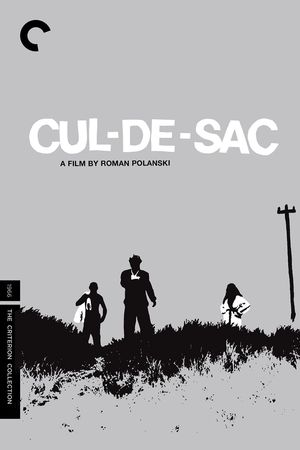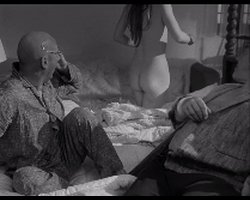
Cul-de-sac (1966)
Erscheinungsjahr: 1966
Land: United Kingdom
Alternative Title: Armadilha do Destino, Задънена улица, Slijepa ulica, Slepá ulička, Ve slepé uličce
Regisseur: Roman Polanski
Writer: Gérard Brach, Roman Polanski
Produktion & Genre
Produzent: Producer: Gene Gutowski, Michael Klinger, Tony Tenser
Executive Producer: Sam Waynberg
Firmen: Compton Films, Tekli British Productions
Genre: Comedy, Comedy Film, Comedy Thriller, Drama, Thriller
Budget: 135.000
Auszeichnungen & Ähnliche
Auszeichnungen:
Ähnliche:
Schlüsselwörter
Schlüsselwörter: age difference, black and white, castle, dark comedy, island, isolated house, married couple, northumberland, refrigerator
Geschichte
In Roman Polanski's 'Cul-de-sac' (1966), a wounded criminal named Dickie and his dying partner, Jack, take refuge in an isolated castle on a remote island off the coast of Northumberland. The castle is owned by a meek Englishman named Sir Edward, and his willful French wife, Geraldine. Initially, Sir Edward is unwilling to harbor the criminals, but he complies under duress. However, the dynamics between Dickie, Geraldine, and Sir Edward begin to shift comically as Dickie manipulates them for his survival.
Zusammenfassung
'Cul-de-sac' is a dark comedy-thriller directed by Roman Polanski in 1966. Set primarily within an isolated castle on a Northumberland island, the film explores themes of manipulation and shifting power dynamics among its four main characters: two criminals on the run (Dickie and Jack), and a married couple (Sir Edward and Geraldine). Polanski masterfully blends comedy with tension in this black-and-white film, showcasing his signature dark humor while also touching on themes of marriage, age difference, and desperation. The film is known for its memorable performances and unique blend of genres, making it a standout title in Polanski's early career.


